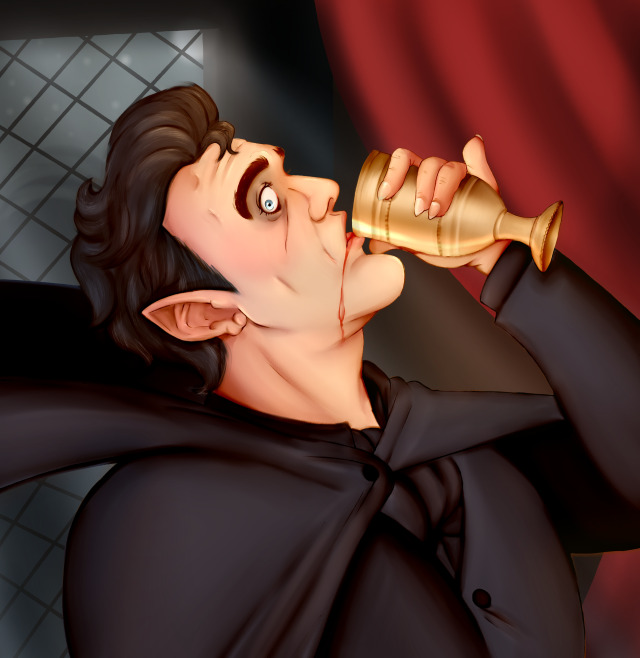#stefan karl
I’m going to translate a series of articles that Stefán Karl wrote for the news website of Kvennablaðið, unfortunately Kvennablaðið has been discontinued and the site no longer exists.
But thankfully, the articles that Stefán Karl wrote were archived on archive.org and as a way to archive them further, I’m going to translate all of them.
Something to note first, while the text is intact, a lot of the images weren’t archived properly so they’re lost, I’m also going to leave some misspellings as is in the articles just for the sake of archiving.
This is part 8 of 8:
Original article: https://web.archive.org/web/20200926180851/https://kvennabladid.is/2017/01/30/eg-styd-sjomenn/

I support fishermen
Published on 30 Jan 2017, Categorized POPULAR Tags: ITEMS • WAGE STRUCTURE • ELECTIONS • COST PARTICIPATION • QUOTA KINGS • QUOTA KING • QUOTAS • WAGES • SOCIETY • SAILORS• TRAWLERS • FISHING
Why is there so much stagnation in society towards fishermen?
Why can’t the public support them better?
It has never been customary in Icelandic society to criticize the quota king in the municipality because he has the small community in his back pocket. “He” can offer anything to sailors and their families, “He” walks around the town and talks about the day and the road and doesn’t have to do anything to play king, the others take care of it by bending and turning. The livelihood of the whole families, the whole generation, is in the hands of such “Quota Kings” and their fishing in the area and therefore nothing can be said. The “kings” usually build the biggest houses, own the nicest cars and everything is transferred to the “quota kings” because without them this small municipality wouldn’t be much and will probably just become nothing. People should thank the “Quota King” for not going to the next town, “He” could have done it but did not and for that we should be thankful.
“DEMANDS”!?! AND THEN WHAT?!? (Read like the soup scene from Oliver Twist)
“Then you come here and you’re going to ask me for a wage increase!” - Now the “Quota King” is offered enough and yes, yes, you get an increase but you will then have to pay the cost that I’m also paying. The oil and the ships that I am building for you. I don’t need to have any luxury trawlers built for you, I could just have any old mud boat, but if you really want to, I will go for the new build, but then you must also pay for it. When I sell the ship (which is about 25-40 years old) you won’t get a penny from it as the cost will be so heavy for me and my family that we’ll have to own another new trawler, which you will then have to pay the down payment of too, or your next generation.
Of course, our fisherman agrees, as he doesn’t that have many other options. The fisherman who came to the place to build a future for himself and his family, or just came on board in search of work as a loner, has suddenly become a large operator of a two thousand million ISK trawler and has begun to participate in all kinds of costs with food and clothing that he has no overview of and no agent to review the company’s accounts to make sure his contribution is commensurate with the actual cost of the trip. Yes, and even though the fisherman may not have many restaurants on board in the Baltic Sea, he is still obliged to pay for the food in one restaurant with a small subsidy from the company, as fishermen are forbidden to bring their own kitchen on board, let alone use the kitchen for your own cooking. On the contrary, one of the crew has a duty to get in from the deck or out of the train and help the chef who himself has to take part in gutting fish between meals, we don’t want to see people sitting and resting on board trawlers, such poverty costs people the share.
Actors who work in a dream studio receive a paid guarantee and then a share of the tickets are sold, the general success of the film in which the person works. For simplicity, let’s say one movie is like one tour. Yes, it would be strange if Ólafur Darri came to Steven Spielberg’s location with a salary guarantee of one and a half million and 1/150 part of the film’s profit, but would have to pay for his own food, the costume and the make-up, the set (because it is new), the camera and all devices that were under 7 years old, as well as the electricity needed to run the lighting equipment. Do you think that Ólafur Darri or any other actor would accept such an exchange when looking at the overall interests, profits, etc.?
It’s natural that those who own the bulk of the film and its production bear the cost, that is because they have a higher share, that is why it is in their interests to run a profitable business, so that they can then pay themselves a larger share of the capital that is available for the exchange after the tour has ended and a settlement has taken place. The actor doesn’t get to see the results, can you imagine if all the actors, extras, walk-ins and staff of Shindler’s List would have had to go over every single bill before the salary was paid? Probably no one would have gotten paid yet to this day. Therefore, matters are simplified in such a way that everyone who is still involved (like the fisherman) gets a wage guarantee and then part of the success as one company (SAG / AFTRA) manages the whole group and no one has to participate in any costs, as such a calculation example would be ridiculous.
Therefore, it is difficult for me to understand why the fishing industry - “Spielberg” in Iceland - makes the fishermen (actors) bear the actual costs without them or the treasury receiving anything in return. Fishermen and the general public in the country are being deceived, and this has been the case for the past 35 years or since 1983 with the enactment of Act no. 24/1986 on oil standards. A catch insurance fund and items such as employers’ counter-contributions such as social security contributions, accident insurance, etc. were included in the oil benchmark. Inserted as a cost to seafarers who the employer or the fishing industry is required by law to pay for those who work for the fishing industry.
Both fishermen and the general public are making billions in revenue in total and the state in the billions in income tax. These are the billions that end up in the pockets of the fishing industry, the shipowners, the “quota kings” that no one dares to upset or oppose so that the town is not left to dry. The “quota king” who cries so loudly that he falls in the mountains if he has to pick up his wallet and pay more. The company’s pain threshold is very low when it comes to picking up the wallet, but very high when it comes to taking a strike, because the company’s funds are around the world, unexplored and untaxed if it turns out to be true, not only the wages of hardworking fishermen. who risk everything and live in a remote camp with their children and wives, there lies Landspítalinn, there lies our education system, there lies the disability benefits and our social system, there lies the Norðfjörður tunnel, Dýrafjarðar tunnel and other transport connections, there are probably close to four hundred billion from the last 35 years (from 1983 with the enactment of Act No. 24/1986)
I like fish and almost every time it is on my plate I think of Icelandic fishermen, my father who was a fisherman, my grandfather who was an engineer and the many fishermen who are in my family and around me and everyone I know, fishermen are everywhere, they number in the thousands and are a big part of our society, they pull rocks into the farm every day and are supposed to get much more for it because then we also get much more.
Let us not be so numb, we will get the money we have from the fishing industry, the money that swims around Iceland around the clock and build our society and reduce inequality. Remember that if the fisherman gets more, you get more too, when the fisherman’s share is reduced, your share is also reduced, we have the resource in the sea, right? And the next time you park in an unbuilt and unheated car park by the 100-year-old Landspítalinn by Hringbraut (which is not even Hringbraut anymore) and come out and have already received a parking ticket on top of the cost participation you paid out when you paid 2,500 ISK. for the blood test you were in, think of the “Quota King” and be careful not to complain because if it were not for him, you might not even have been able to take a blood test.
Is that the joy of the devil,
commissions and profits,
the wealth of the poor man
found in rich funds.
Hjálmar Jónsson from Bóla
1796 - 1875
http://www.althingi.is/lagas/nuna/1986024.html
https://www.facebook.com/stefankarl.stefansson/posts/1242340135819636
I’m going to translate a series of articles that Stefán Karl wrote for the news website of Kvennablaðið, unfortunately Kvennablaðið has been discontinued and the site no longer exists.
But thankfully, the articles that Stefán Karl wrote were archived on archive.org and as a way to archive them further, I’m going to translate all of them.
Something to note first, while the text is intact, a lot of the images weren’t archived properly so they’re lost, I’m also going to leave some misspellings as is in the articles just for the sake of archiving.
This is part 7 of 8:
Original article: https://web.archive.org/web/20151114231315/http://kvennabladid.is/2015/10/08/af-menningarsveppum
Of the cultural fungi
Published on 8 Oct 2015, Categorized ARTS & CULTURE Tags: OPINION PERSONS • ELITE • FUNGI• ART SPIRITS • ART • PHOTOGRAPHY • CULTURE • CULTURAL LIGHTS • MUSHROOMS
Sveppir (fungi) are in many ways unique organisms and therefore classified into their own kingdom, the fungal kingdom.
For a long time, however, fungi were classified as plants, because at first look they were more like them compared to animals.
There is, however, a fundamental difference between fungi and plants where plants are primitive and use chlorophyll for photosynthesis, but fungi can’t photosynthesize and form their own nutrients themselves, but they’re preservatives and feed on organisms such as dead plant parts and carcasses of animals.
Self-appointed cultural fungi also exist. I want to avoid mentioning names and groups, as these cultural fungi are quite fond of cracking down on artistic sprouts by any name.
About cultural fungi, like other fungi, that they are predisposed to photosynthesis when it comes to culture and the arts and therefore sit saltily in the distance - keep quiet for years, but then spring up from the soil to absorb nutrients from products that the sprouts themselves have long forgotten.
There is little more recognition in the arts than achieving the goal of grabbing the attention of the cultural fungi, which considers itself so much of an astute that it does not even have to familiarize itself with what the artistic sprout does before learned articles about its results spring up like mold in wetlands.
A recent example of this awakening of the cultural fungi is when a fool in the wild allowed himself to call an “elite” by name.
The elite is precisely the kingdom with which the cultured fungi was always classified as before, until the cultured fungi couldn’t produce their own nutrition as has been stated before and need “fertilizer” or some kind of support in order to hope for life. And because the cultural fungi and the wannabe cultural fungi have everything under the elite, they react to the idea of talking the elite down and pretending that it doesn’t exist. This is a well-known method in the whole animal -and plant kingdom.
But in the fungus kingdom some are edible while others are poisonous and it is often impossible to distinguish between them and therefore it is important to urge the ancient saying: “Beware of imitations”. Cultural fungi often try to get art sprouts to adapt to them, which unfortunately often causes the latter illnesses - even death.
With this article, I would like to remind you that we must take good care of nature, not step on the buds of art and not indulge in any cultural fungus. Most of the sprouts are edible, although they are not suitable for everyone, but the fungi can be dangerous, as they are seasonal products, except those that are produced in specially made greenhouses, tasteless and low in nutrients.

Somewhat relatable drawing of Stefán Karl as Lárus
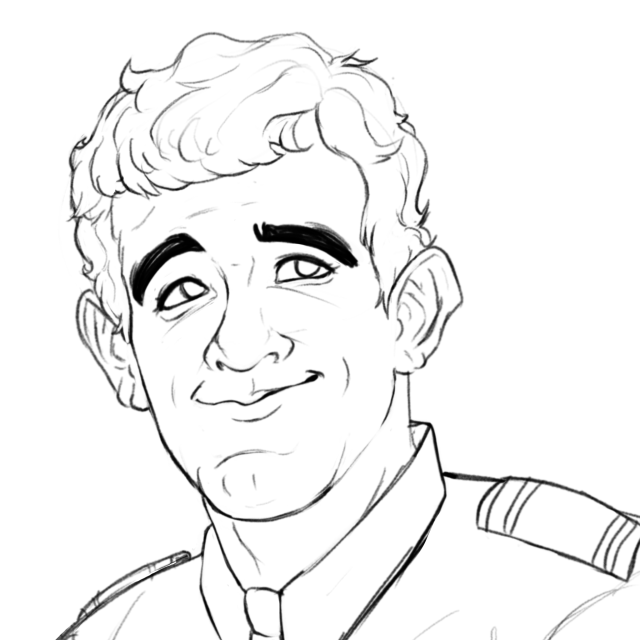
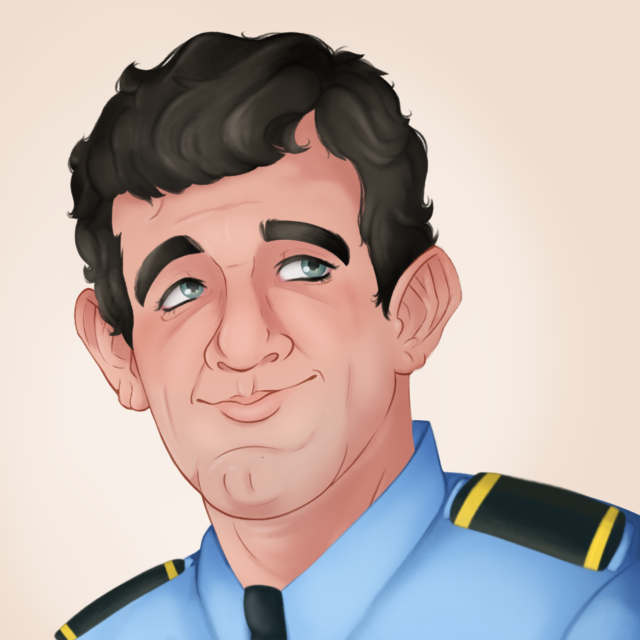
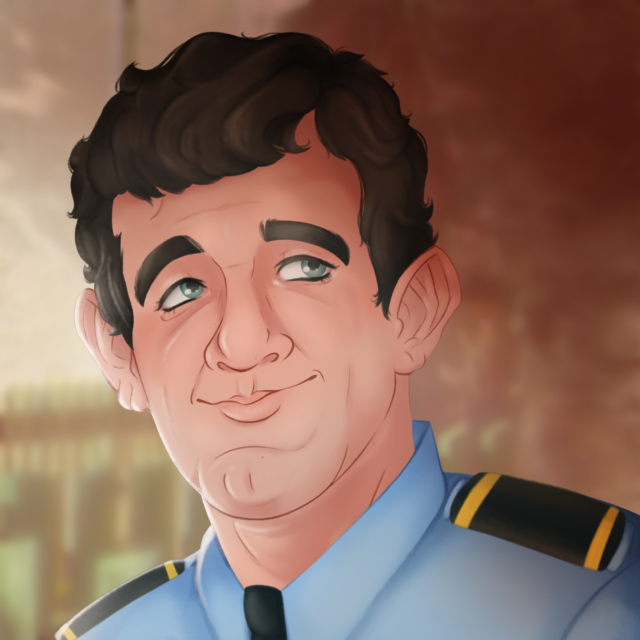
Digital painting of Stefán Karl as constable Manni

Stefán Karl as the blind German teacher from Þú ert í blóma lífsins fíflið þitt! (1990) (which you can watch here)


Doodle of the little fella from the cover of Jaba Daba Dúúú








Couple of random screenshot redraws of Stefán Karl and his characters, some lazier than others xP
If you’re curious about where these screenshots come from you can ask since I’ll only be listing the characters and where they’re from ;3;
- Ted from Titch and Ted (2015)
- Lárus from Polite People (2011)
- Unnamed character from Í Góðum Gír (2002)
- Robbie Rotten from Lazytown (2004)
- The priest from In the heart of robin hood (2015)
- Glanni Glæpur from Glanni Glæpur í Latabæ (1999)


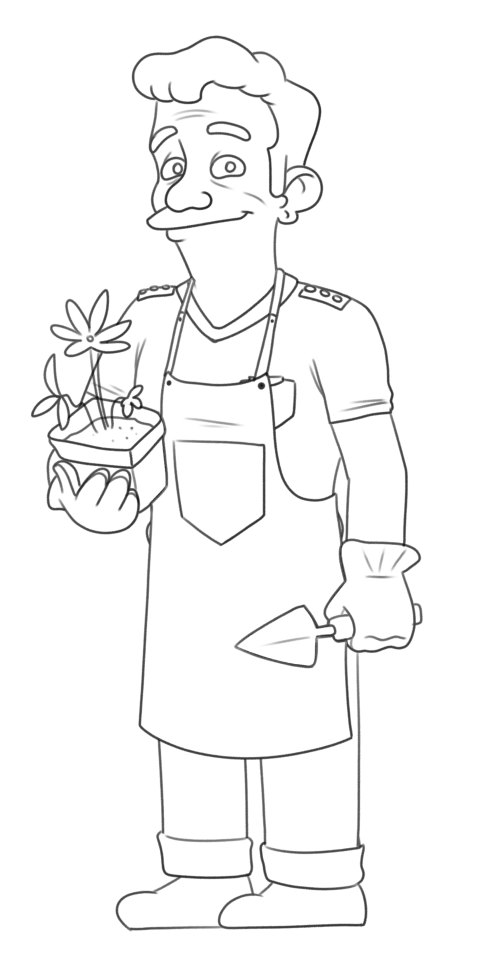
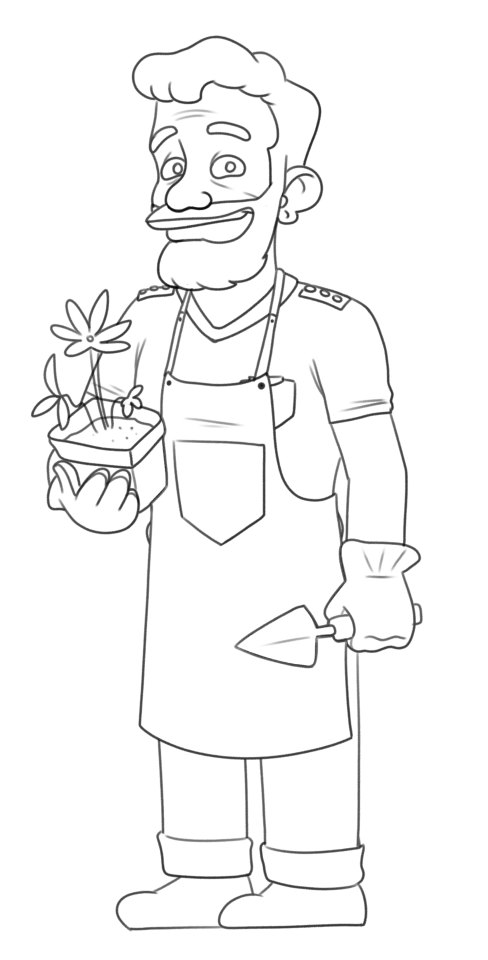
A friend of mines (@iedasb) asked me to draw Stefán Karl as if he were a simpsons character, so I attempted to create a design that was inspired by his gardening outfits :,)

“Stebbified” version of Dracula from Hotel Transylvania, since Stefán Karl was his Icelandic dubber :V


Painting of Glanni Glæpur that’s vaguely inspired by Fallen Angel by Alexandre Cabanel


Diddi smokin’ a joint Mario style.jpg

Diddi

Glanni Glæpur ✨

Prince Herbert ✨

I saw this challenge and I was interested in doing it with my boy Robbie Rotten, it was fun to try out :V

Quick drawin’ of this adorable dorky Stebbi character from skaup 1994 :,)

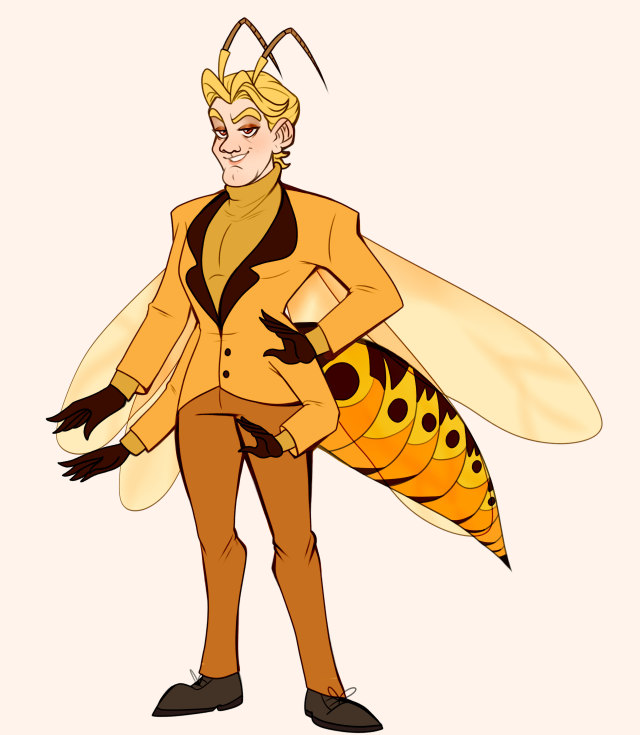
Humanized version of Stefán Karl as Chip the wasp from the movie Antz, we don’t have any footage of him as Chip tho :c
Despite that he was fun to design

sorry

Quick drawin’ of Stefán Karl as Bói from the little shop of horrors, his color palette reminds me of raspberry cheesecake

(Photo taken from here)


Inspired by King by Kanaria



